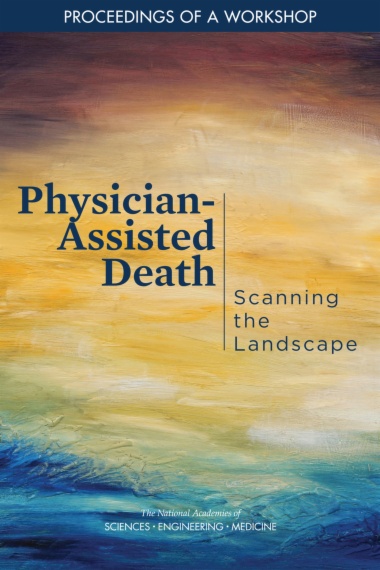

The question of whether and under what circumstances terminally ill patients should be able to access life-ending medications with the aid of a physician is receiving increasing attention as a matter of public opinion and of public policy. Ethicists, clinicians, patients, and their families debate whether physician-assisted death ought to be a legal option for patients. While public opinion is divided and public policy debates include moral, ethical, and policy considerations, a demand for physician-assisted death persists among some patients, and the inconsistent legal terrain leaves a number of questions and challenges for health care providers to navigate when presented with patients considering or requesting physician-assisted death.
To discuss what is known and not known empirically about the practice of physician-assisted death, the National Academies of Sciences, Engineering, and Medicine convened a 2-day workshop in Washington, DC, on February 12-13, 2018. This publication summarizes the presentations and discussions from the workshop.